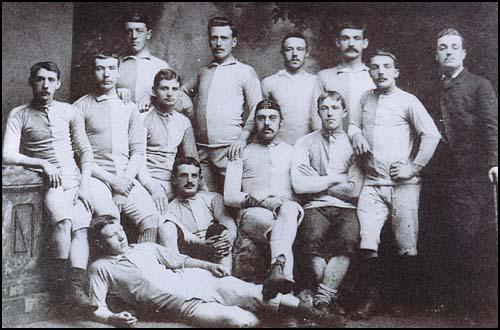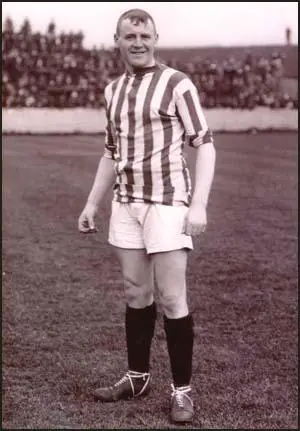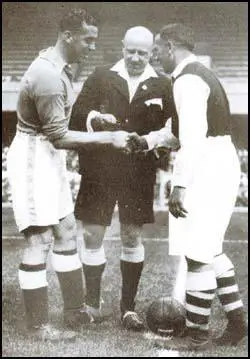Football Kits
Early football teams played in kit that was not dissimilar to that of cricket, and generally considered of shirt, flannel trousers, strong boots and a cap. At first clubs used a variety of different designs. For example, in 1884 Bolton Wanderers wore white shirts with red spots. The following year they changed to red, blue and white stripes.
When Preston North End was established in 1863 they played in narrow blue stripes and long white trousers. They did not change to white shirts until 1888. On the other hand, Blackburn Rovers, established in 1875, wore shirts of blue and white halves from the very beginning.

By the 1890s football shirt designs had settled into a few standardized alternatives. This included plain, stripes, hoops and halves. Shirts were normally flannelette with laced collars. Aston Villa were fairly unique by preferring woolen jerseys with round necks.
Clubs also began to abandon the idea of wearing flannel trousers. Instead they dressed in knickerbockers made from serge, swansdown or lambskin.
Charlie Roberts of Manchester United upset the Football Association by starting the fashion of wearing very short knickers. In 1904 the FA took action by passing a regulation that stipulated that football knickers covered the knees. Roberts and some other players ignored this regulation and knickerbockers were eventually called shorts. However, many players, including the great Alex James, continued to wear long baggy shorts.

In the early days clubs did not have to wear the same colour socks. It was only in 1937 that the Football League required clubs to register the colour and design of their socks.
In the 19th century goalkeepers wore the same colours as their team-mates. A new regulation was introduced in 1909 that stated that goalkeepers were restricted to scarlet, blue or white jerseys. In 1912 the Football Association also gave permission for green jerseys to be worn. These eventually became the norm. In 1921 the FA decided that yellow jerseys should be worn in international games.

Numbered shirts first appeared in English games in 1928. However it was not until the 1938-39 season that all clubs in the Football League were forced to wear numbers.
